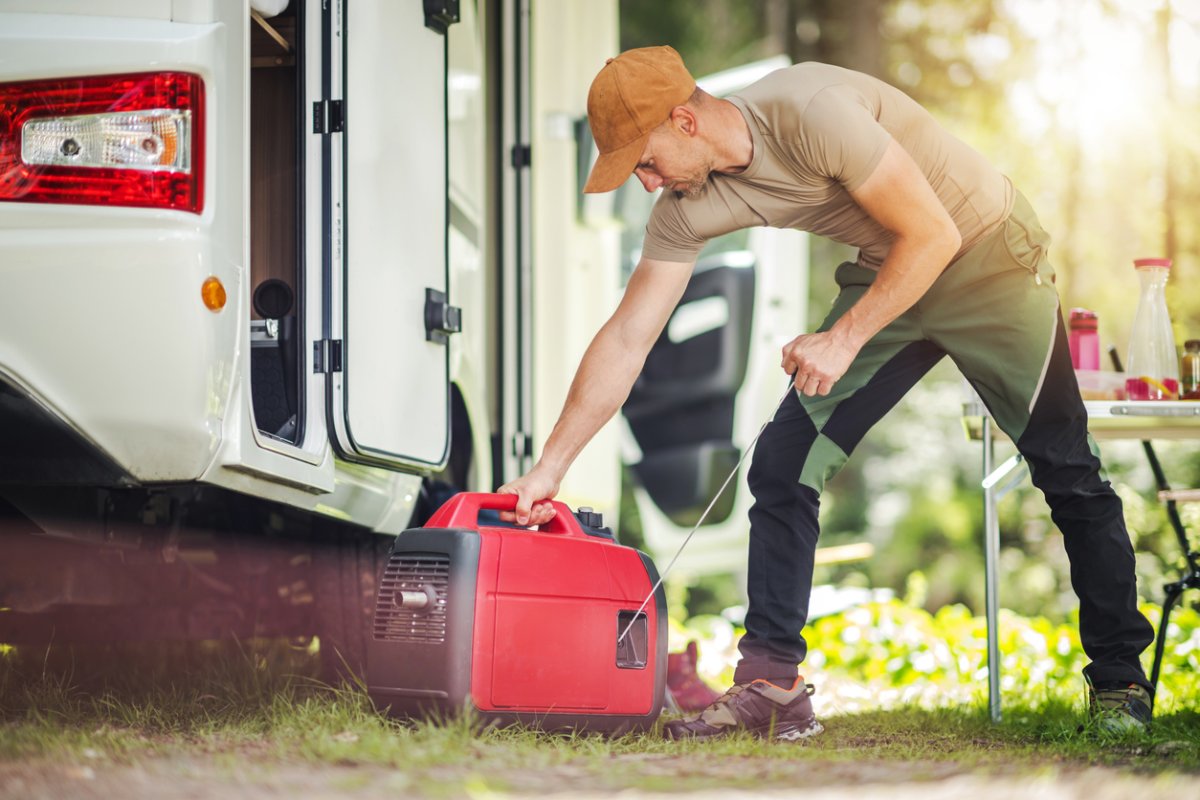We may earn revenue from the products available on this page and participate in affiliate programs. Learn More ›
In this age of rising fuel prices and heightened environmental consciousness, maximizing the efficiency of our everyday tools isn’t just a matter of saving a few bucks—it’s a commitment to sustainable living. Gas-powered yard tools are indispensable assets for many of us, but there are ways to use them that increase their fuel efficiency. Let’s dive into 10 practical ways to conserve gasoline and ensure your equipment’s longevity when you’re using a gas-powered lawn mower, pressure washer, leaf blower, or generator. Get ready to mow, trim, and power up, all while being kinder to your wallet and the planet.
RELATED: After Testing More Than Two Dozen Popular Lawn Mowers, We Found the 9 Best Models
1. Tune Up Regularly

Before diving into specific techniques for saving gas, remember that a well-maintained machine always works more efficiently. Ensure your machines have clean air filters and sharp blades and are in good working condition. Regular maintenance extends the lifespan of power tools and other equipment and prevents you from needlessly wasting fuel.
RELATED: What Is the Average Lawn-Mowing Cost?
2. Plan Out Your Mowing Path
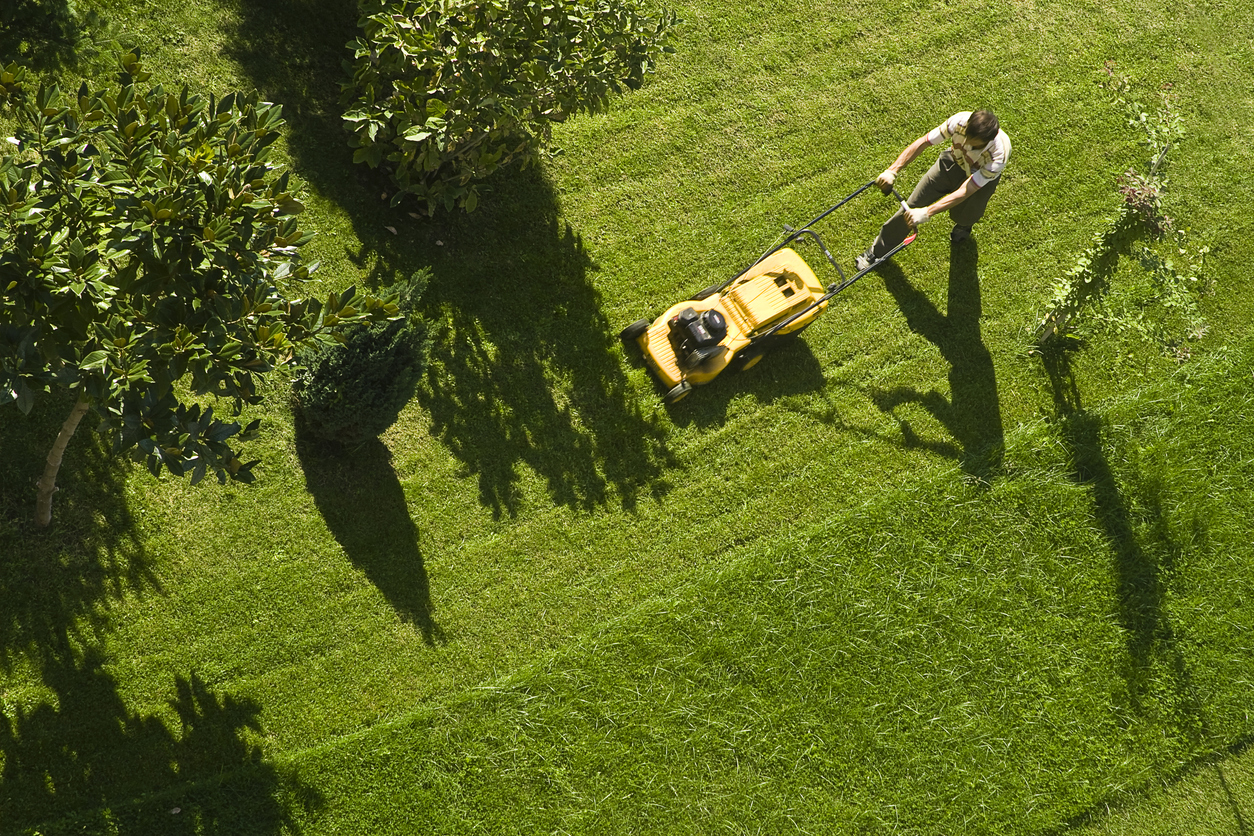
Many of us know that stop-and-go traffic eats up more fuel than continuous driving does, and the same is true for gas-powered tools and appliances. In order to avoid interruptions and limit wasteful idling, plot an efficient path around your yard to help you conserve fuel and get the job done faster. By using a systematic approach, mowing in straight lines, and ensuring only a slight overlap, you can avoid retracing your steps and making unnecessary maneuvers that result in unnecessary fuel usage.
RELATED: Will Switching to All Battery-Powered Lawn Equipment Affect My Electric Bill?
3. Keep Blades Sharp

Dull mower blades not only tear grass but also increase fuel consumption. In fact, according to the Cornell College of Agriculture and Life Sciences, dull blades can increase gas consumption by up to 20 percent. Think of it like cutting vegetables: A sharp knife glides through easily, requiring less force and providing a neat cut, while a blunt one often crushes more than slices. Keep your grass trim and healthy and increase fuel efficiency by regularly sharpening or replacing your mower’s blades.
RELATED: 11 Types of Generators and When to Use Them
4. Practice Selective Generator Use
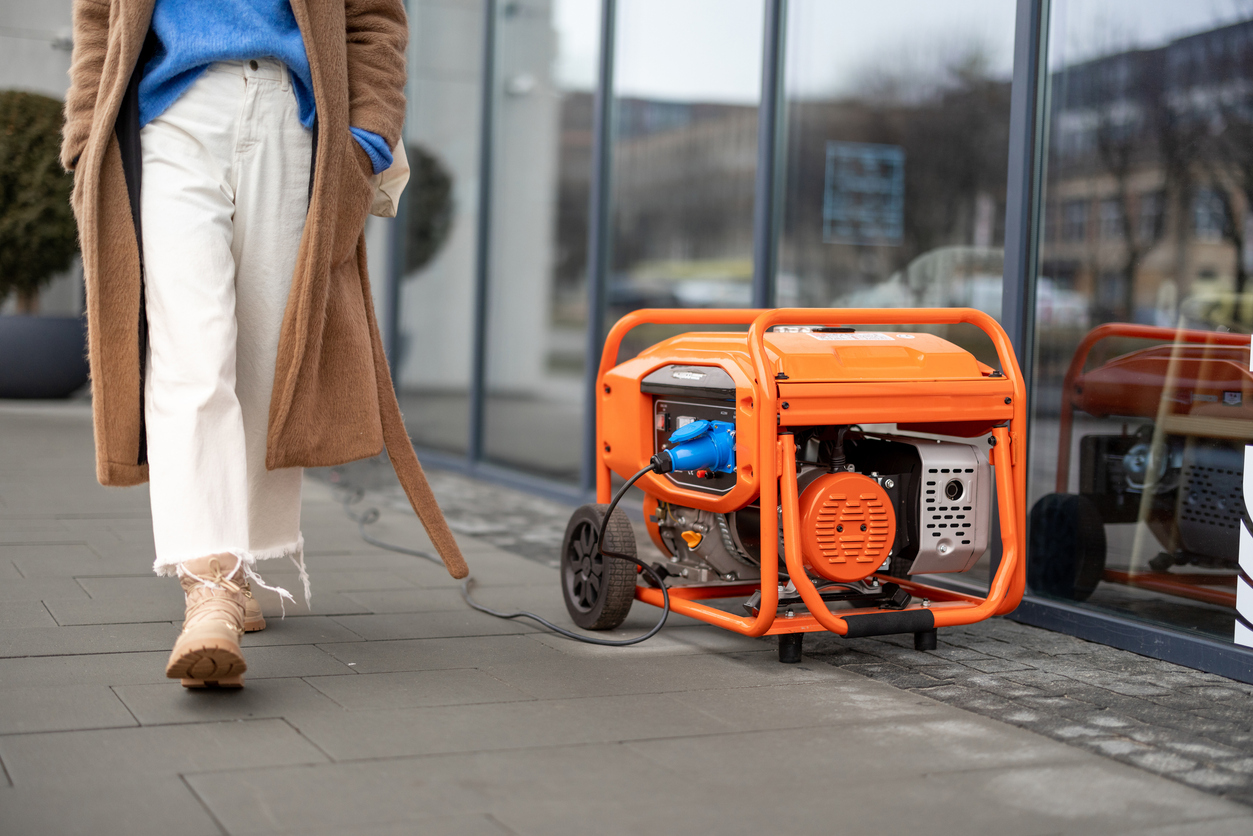
Generators can be lifesavers during power outages, but they can also be major gas guzzlers. The trick is to be selective. Instead of plugging in every appliance, focus on essentials like refrigeration, medical devices, heating or cooling systems, and a few lights. Unnecessary appliances can wait. This selective use reduces the load on the generator, allowing it to operate more efficiently and consume less fuel.
RELATED: The Best Fuel Stabilizers
5. Consider Fuel Additives
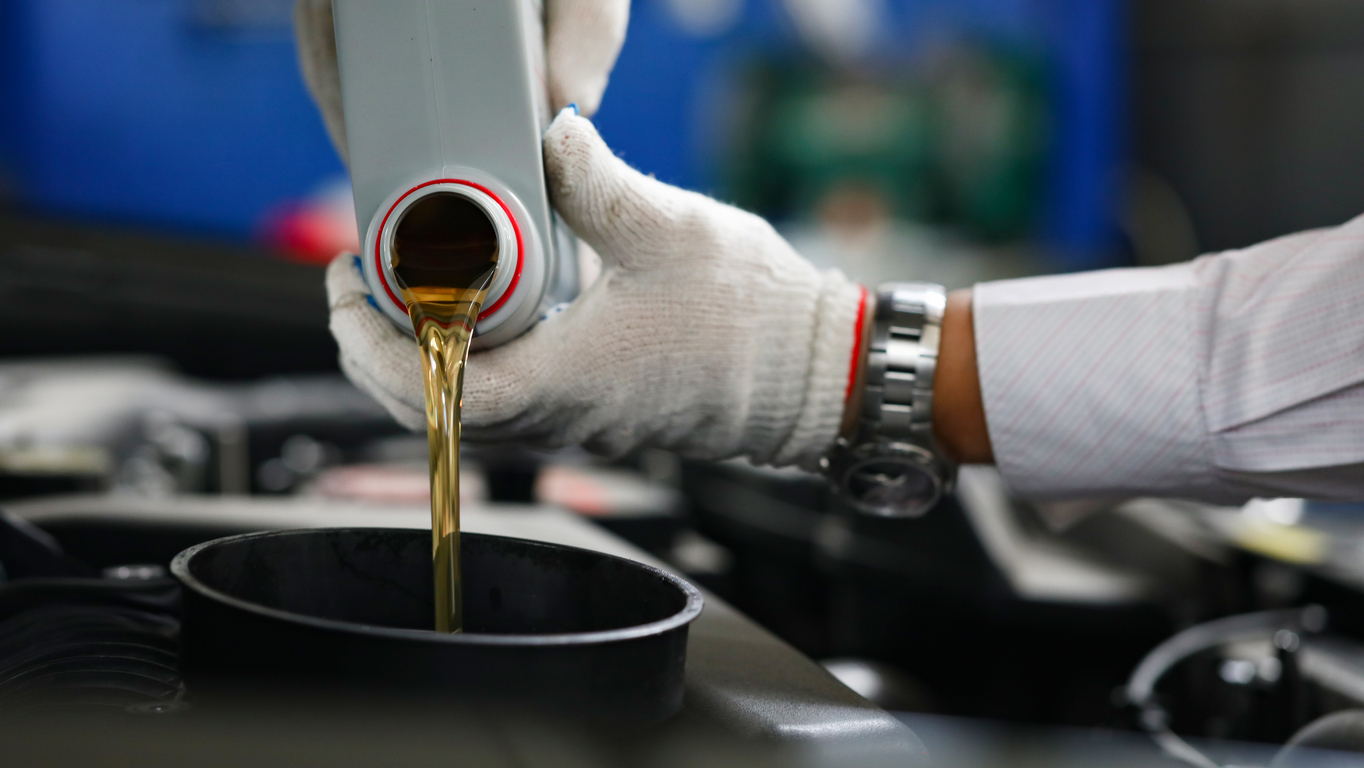
Fuel additives can significantly impact a machine’s fuel efficiency. They work by cleaning and lubricating an engine’s internal parts, which can help improve combustion and reduce waste, leading to better performance and reduced fuel consumption. Some also contain antioxidants, which keep fuel fresh for longer. It’s important to ensure that any additive you consider is appropriate for your specific machine. Follow the manufacturer’s guidelines and use any additives in the recommended proportions to avoid damaging your machine.
RELATED: Home Generator Maintenance Tips to Keep Your Backup Power Shipshape
6. Maintain Your In-Line Fuel Filter

An in-line fuel filter is similar to an air filter but is specifically designed to capture impurities in gasoline—particularly the water found in ethanol-blended gasoline. Like air filters, in-line filters must be replaced regularly. Always handle fuel filter replacements for your pressure washer or other equipment outdoors in open areas to ensure proper ventilation so you don’t inhale harmful fumes.
RELATED: The 20 Best Lawn Care Products for a Lush and Healthy Lawn
7. Use the Right Equipment for the Job

When it comes to lawn and yard care, there are countless tools available. To save on fuel, it’s best to use electric or battery-powered tools for smaller jobs like trimming a few shrubs or cleaning a small deck. They’ll get the job done. Reserve your heavy-duty gas-powered machines for larger, more demanding tasks.
RELATED: The War on Leaf Blowers: Why Some Communities Are Up in Arms Over the Loud Lawn Tools
8. Pump Your Tires
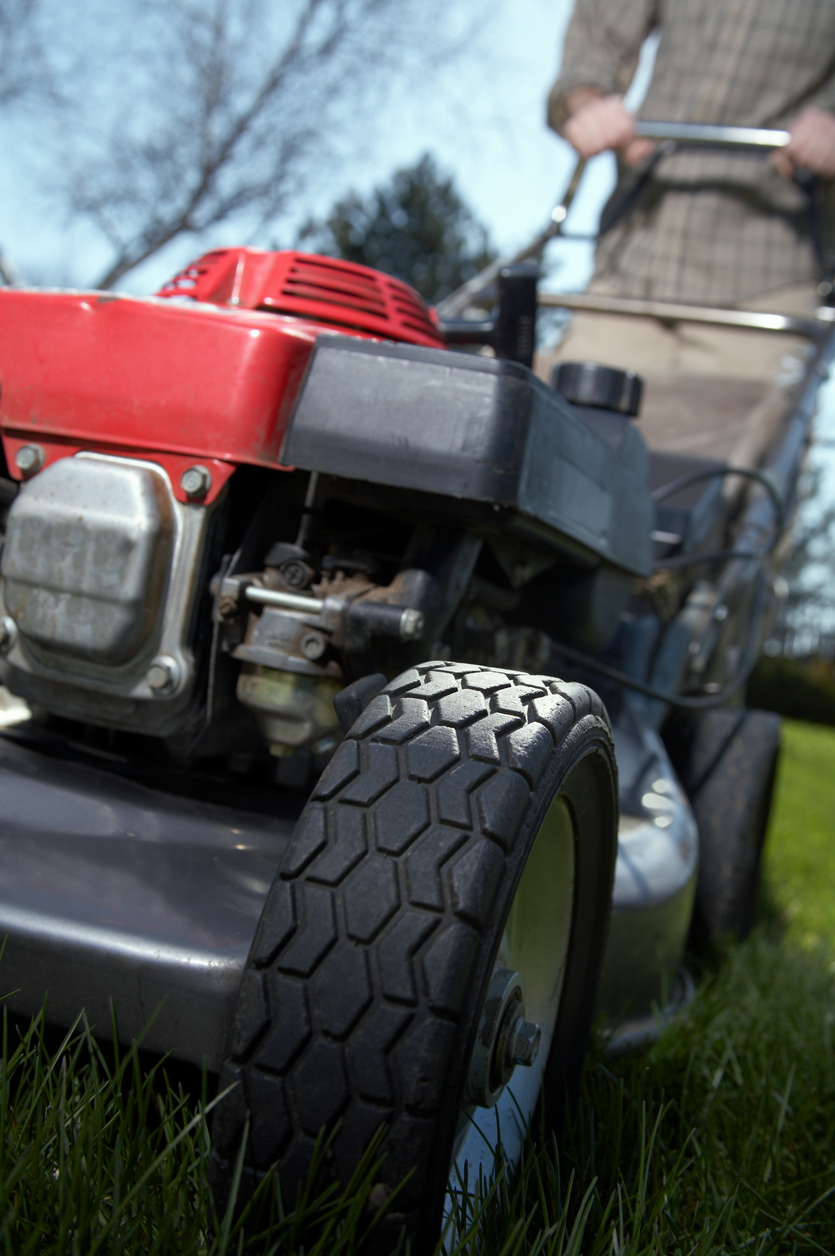
One unexpected factor that can impact a lawn mower’s fuel efficiency is tire pressure. If mower tires are underinflated—especially on a riding mower—they can cause drag, leading to less efficient fuel use. Fortunately, the tires typically used on mowers are compatible with bicycle pumps and can be inflated at home.
RELATED: The Best Lawn and Garden Products Tested in 2022
9. Practice Proper Gasoline Storage
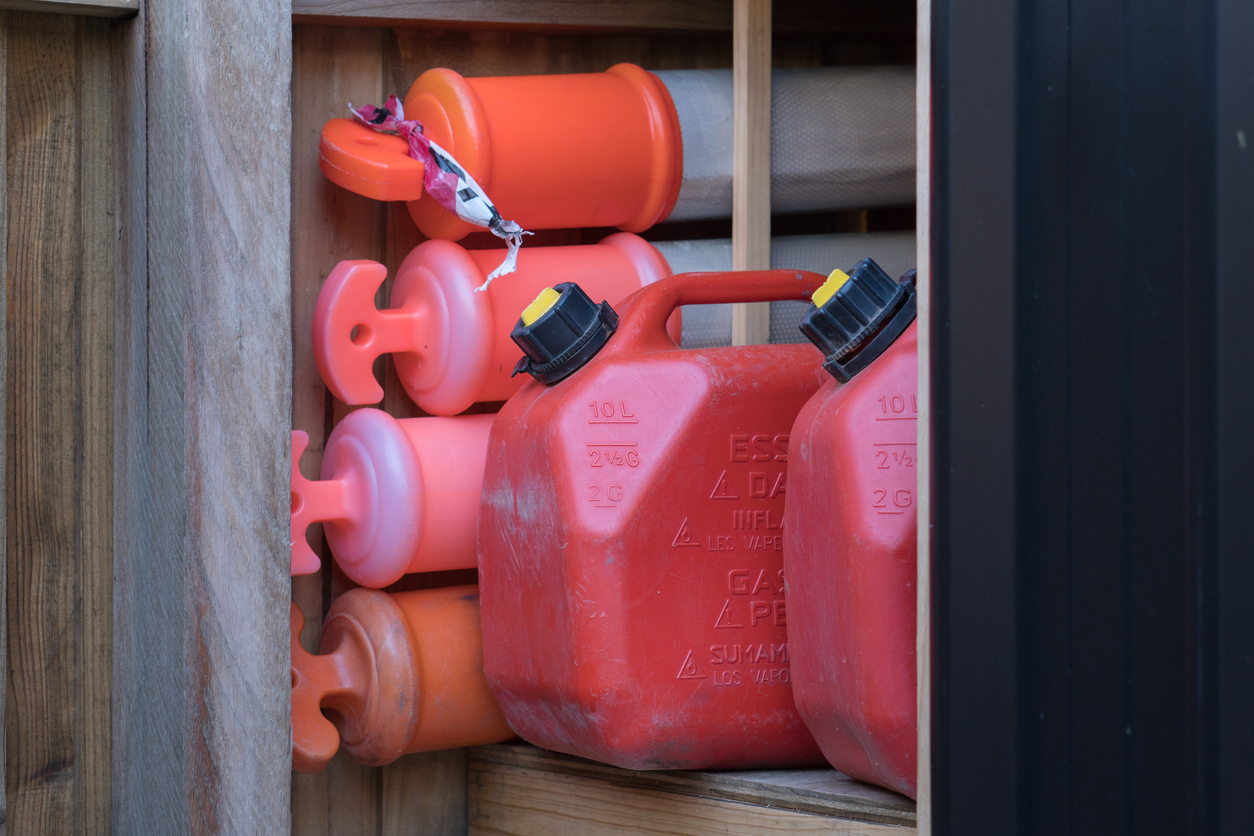
One of the most important steps in maintaining gasoline’s performance is storing it properly. Generally speaking, unleaded gasoline starts to degrade about a month after it’s been pumped. While it’s still usable beyond that point, it won’t perform quite as well. To keep your gas fresh for as long as possible, store it in a well-sealed container in a cool, dry place. To further reduce the chances of fuel degradation, use a fuel additive in gas that’s being stored.

